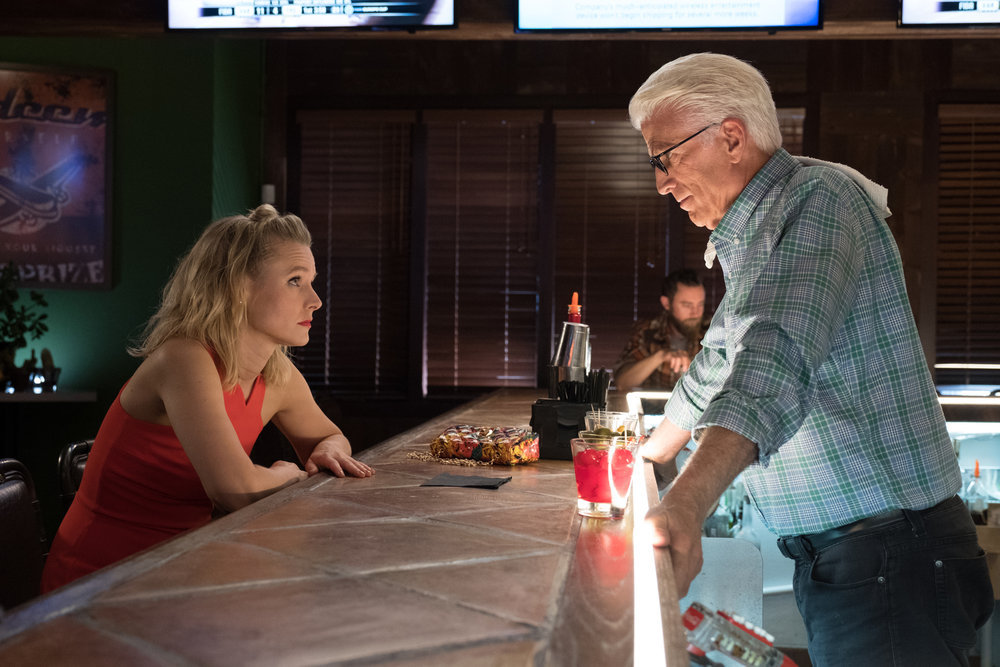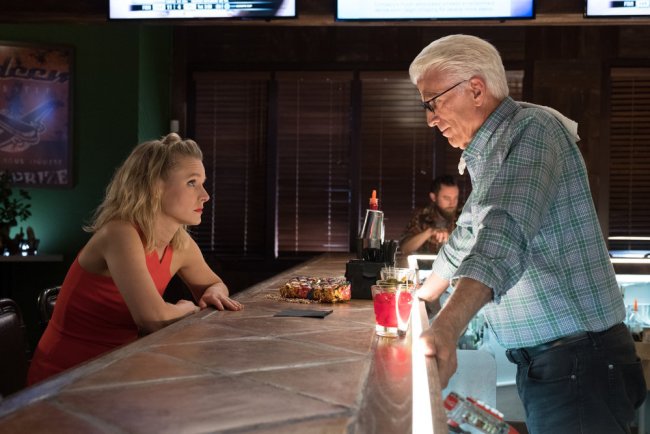We Didn’t Need a Reminder of Just How Good The Good Place Is, but Its Season Finale Gave It to Us Anyway


It’s been a full week since the second season finale of The Good Place aired, and we’re still coming to terms with all the feelings it stirred up.
Warning: Spoilers through the end of season two ahead!
https://twitter.com/zach4484/status/959628941333028864
The show spent an entire season repeatedly rebooting itself and upending the circumstances they’d just set up. Each time they did so–practically in every episode–the characters were painted into a smaller corner. Michael was increasingly stressed; they were all closer to getting caught; the group had to give up the relative safety of their afterlife home and go to literal hell. It was all great conflict, but it was stressful as … well, as hell, as each episode ended with the audience wondering where there possibly was left to go.
But after spending a season building a big tight ball of seemingly inescapable anxiety, the season finale exploded itself once again and reinvested in the show’s greatest strength: its hope.
There were a lot of ways that this show could have gotten even darker. Instead, they gave the characters another chance at life, reinstating their free will (plus a little cheating). While the afterlife (the “Good Place,” anyway) is usually depicted as the blissful relief that comes after a life of mortal constraints, this finale gave us the opposite. For these characters, the afterlife had been increasingly stifling. Eleanor’s second chance at life felt like watching her be set free. It felt like hope.
Because above all else, this show believes, deeply, in human goodness. It’s what makes it the nicest show on television. Which makes sense, seeing as the show comes from Michael Schur, who created the previous title holder, Parks and Recreation. Speaking of which …
https://twitter.com/ShinraAlpha/status/960881442871005184
It’s so heartening to see that there is not just a place for this sort of kindness-based comedy, but a real yearning for it. Audiences have had a strong reaction to this show, both as a just genuinely great television show, but also to the messages it inherently carries about ethics and goodness and humanity. The actual What We Owe to Each Other is currently #10 in Amazon’s academic philosophy rankings. (To be fair, I don’t know what its ranking was before the show aired, but I’m choosing to believe it gave this 20-year-old book a boost.)
just went to look up ‘what we owe to each other‘ because of chidi’s lecture and the first review on goodreads said ‘i won’t lie, i read this because of the good place’
— @karamazovas.bsky.social (@karamazovas) February 6, 2018
https://twitter.com/yashwinacanter/status/960131089858777088
I can’t wait to see how the third season pans out, and what the next big twist is. What about you all? Were you as excited by this second chance at life? Do you have any hopes or predictions for where they go from here?
(image: Colleen Hayes/NBC)
Want more stories like this? Become a subscriber and support the site!
—The Mary Sue has a strict comment policy that forbids, but is not limited to, personal insults toward anyone, hate speech, and trolling.—
Have a tip we should know? [email protected]
